- トップページ
- 日本国内での取り組み
- JICA中部
- 「人」明日へのストーリー
- Maritime Transport Development in Papua New Guinea (Mr. Sylvester ROKUMAN - Part 3) ~Interview to JICA Long-term Participant~

JICA Long-term Training Program Participant (JICA Scholarship for Graduate Student)He belongs to Graduate School of Engineering, Nagoya Institute of Technology.(JICA Scholarship: SDGs Global Leaders Course 2019)He is from Independent State of Papua New Gu
Mr. Sylvester ROKUMAN
We interviewed Mr. Sylvester ROKUMAN from Graduate School of Engineering, Nagoya Institute of Technology, one of the Long-term Training Program Participants at JICA Chubu. (Part 1~4)
(Interviewer: Mieko ARAKI, Training Program Division, JICA Chubu)
You are studying at Nagoya Institute of Technology on the JICA Scholarship. One of your main goals is to improve your expertise, urban and rural transportation planning and development, especially. How have your research been contributing to your goal?
The nature of PNG been a developing nation comes with its unique challenges. Some of the obvious challenges are funding to build new software (systems) and hardware (infrastructure) and to maintain these systems. This is then further complicated by political corruption and other hidden agendas.
Having experienced working with Japanese counterparts and getting exposed to the area of urban transportation planning and development, and allowed at the Nagoya Institute of Technology to expand my knowledge in the field is a big help to my home country. During my stay in Nagoya, I am allowed to learn how Japan and other developed countries plan and execute their transport infrastructure development; the funding strategies and analytical methods, and the reasoning used to make decisions in transport planning and implementation, I find very interesting and useful to learn. A bonus is that the learning process in Nagoya Institute of Technology is interactive and we have lectures from France, India, Germany, etc. via. online conferences and this is where many other interesting topics and new researches are discussed, apart from the common lectures.
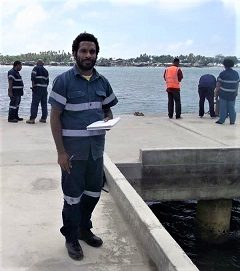
Took the team out for port survey exercise on a jetty in Keapara Village outside Port Moresby, PNG
In PNG, the situation is politically driven, and it has become a norm for the politician to make overriding decisions on infrastructure development, ignoring data analysis and the available government policies regarding transport infrastructure development in PNG. In my experience working for the PNG Government, politicians dictated where the roads are to be built or what project is implemented first. However, in Japan, the government policies for transport infrastructure development are strictly driven by accumulation and statistical analysis of the necessary data, taking all variables and possibilities into consideration.
In my research, I am studying a rural area along the southern coast of my home country. In this area, a phenomenon is observed such that floodwaters from inland flow overland submerging gardens and communities in its path to the coast. In my study, I try to understand what climatic, oceanic, and environmental conditions create such phenomena and determine the reaction of the adjacent coast to such phenomena. Analysis of the seabed bathymetry has revealed unusually uneven seabed elevation throughout the surf zone. These could result in uneven tides, tidal currents, wave action, and the resulting distribution of sediment along the coast. The combination of such anomaly could be hazardous for navigation and would explain certain fatal events that frequently occur in this part of the coast. This study has enhanced my understanding of the coastal processes as well as the climatic processes. Furthermore, when bringing this understanding of the coast, seas, and climate (including in-depth discussions and practice on Structural Simulation, Structural Stability, and Urban Transport Planning lectures and conferences) to the planning and design of ports or coastal and ocean structures, it creates a complete understanding of my position and directs my views to possible solutions I can be able to actively assess and propose solutions to.
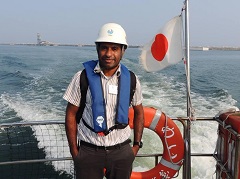
Yokohama Port Tour
The scale of my research alone is very broad. In my research, I cover areas in flood analysis, climate science, oceanography, coastal morphology, coastal processes, river analysis (fluvial processes), geodesy, and data analysis & simulation. In my home country, I work as a port engineer for the government, and this research has broadened my understanding and I feel I am in a better position to address persisting matters dealing with transportation, particularly in the port and coastal transport sector. Furthermore, with a better understanding of the field, I can be useful to the PNG government when developing much-needed policies and plans for port development.
Japan has organized the Pacific Islands Leaders Meetings including PNG since 1997. (PALM9 will be held online this month.) You belong to PNG department of Transport and Infrastructure. How can Japan better support PNG more in developing influstructure?
For this, I speak from my experience in the maritime transport sector of PNG, that is, ports and shipping. Lessons learned from the previous JICA project on ‘Port Policy and Administration for the Independent State of Papua New Guinea’, which I was heavily involved in from 2014 to 2017, highlighted some issues that needed to be addressed by the PNG Department of Transport and Infrastructure. Some of these issues were lack of expertise, unclear demarcation of roles of the statutory and corporate agencies responsible for port development, operations, management, funding, etc., and most importantly, the policy framework.
Phase I of the above project has been completed and we are currently planning Phase II with JICA PNG, however, it seems that due to the existing faulty policy framework, certain projects with regards to ports in PNG have been stalled. The legal framework and role demarcation matters have not been conducive for effective engagement of parties such as the Japanese Government assistance, etc. Although there may be loopholes in the policy framework that may allow Japan and PNG governments to engage effectively in such projects, experience from Phase I suggest that attention be given to the policy framework of the port and shipping administration.
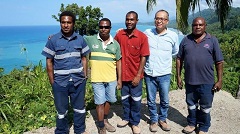
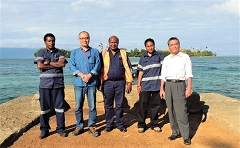
(Both photos)With project members including Japanese experts, in East Cape, outside Alotau, PNG (Syl-san is the very left)
It is my personal opinion that Japan can better support PNG more in developing infrastructure firstly by first assisting PNG to develop and implement a better transport administration with clear role demarcation among all relevant parties so that further engagements with the Japanese Government can be facilitated smoothly.
* In the next final edition, we will share his impressive memory in Japan!
Related Links
- The 9th Pacific Islands Leaders Meeting (PALM9)
- The Project for Capacity Development of Department of Transport in Port Policy and Administration (in Japanese)
- Papua New Guinea with Unique Indigenous Cultures (Mr. Sylvester ROKUMAN - Part 1)~Interview to JICA Long-term Participant~
- Japan for Papua New Guinea (Mr. Sylvester ROKUMAN - Part 2) ~Interview to JICA Long-term Participant~




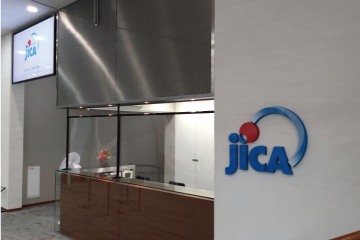

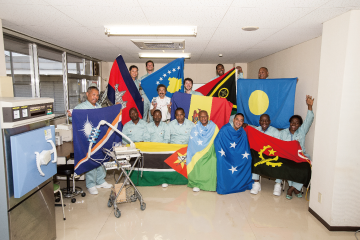

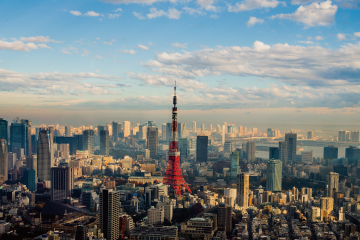



scroll